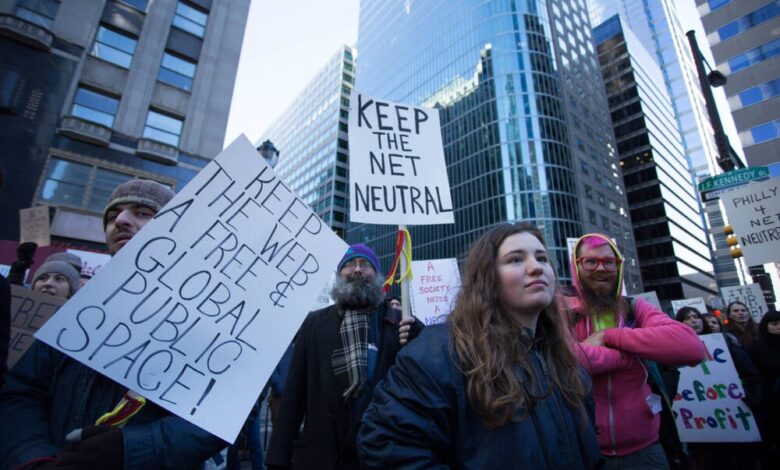Big Telco takes aim at renewed net neutrality rules • The Register

Telecom industry organizations have petitioned the Federal Communications Commission (FCC) to halt its order to restore net neutrality.
The petition [PDF] was penned by lawyers from a variety of telecom lobbying groups, who represent telecom companies across the country including AT&T, Verizon, and Comcast. While the petition doesn’t really ask for more than a delay to the implementation of the new net neutrality rules, it does charge the FCC with making a “seismic claim of authority.”
“In its Open Internet Order, the Commission has once again claimed all-encompassing authority to regulate how Americans access the Internet — this time, adopting even more invasive rules than it did in 2015,” the petition starts off. “Petitioners respectfully request that the Commission stay the effectiveness of its Order pending judicial review.”
In other words, the telecom industry wants a grace period that will allow it to work at overturning the net neutrality rules that were introduced in April before they even get off the ground, which is slated to happen on July 22.
The petition makes three general arguments for issuing a pause on net neutrality, the first of which is that the FCC may not have the authority to reinstate net neutrality at all. The reasoning is that reclassifying the legal status of broadband firms from an information service to a telecommunications service (the thing that makes net neutrality possible) is so extreme that the FCC must justify its newfound authority with the approval of Congress.
The lobbyists rely heavily on the wording of the Telecommunications Act of 1996, which they say makes it clear that internet companies aren’t supposed to be regulated under telecommunications rules, termed Title II.
However, this line of reasoning might not hold up in an actual courtroom, especially since there was a court case over the original 2015 net neutrality rules, and ultimately the US Court of Appeals for the District of Columbia Circuit ruled that the FCC had the authority to switch telecom companies to Title II. Net neutrality was eventually dismantled by the FCC itself under the Trump administration, not via the judiciary.
ISPs threaten to spend less on investments if net neutrality happens again
The petition also claims that reintroducing net neutrality would incur terrible costs on telecom firms and that it would prevent them from investing more into broadband.
“Petitioners’ members will be forced to delay or forgo valuable new services, incur prohibitive compliance costs, and pay more to obtain capital,” the petition says. “Those economic losses are unrecoverable, and therefore irreparable, because the federal government enjoys sovereign immunity from suits for damages.”
Though, there’s very little elaboration on how this would come about if net neutrality was reinstated, and the only hard example contained in the petition is that the FCC might take violators of the rules to court and fine them.
This isn’t a new argument either, as lower capital expenditure in 2015 was one of the FCC’s main reasons for rolling back net neutrality in 2017, citing a one billion dollar decline.
With the benefit of hindsight, however, it doesn’t seem clear if the original net neutrality rules actually depressed spending and investment. A 2018 report from S&P Global shows AT&T, Comcast, and Charter upping their capex by billions of dollars from 2015 to 2017, while most other big firms held steady. The report discusses net neutrality, but doesn’t make a judgement on whether it harmed the industry.
And of course, the petition argues that pausing net neutrality would actually benefit the public. “Pausing the Order would ensure that ISPs continue to invest in network improvement and offer innovative new programs that benefit consumers, rather than divert those efforts toward compliance or forgo such offerings altogether,” the industry orgs claim.
The impending lawsuit against the FCC might also divert some of those resources, whether there’s a pause or not.
It’s unclear if the petition will succeed, but there’s reason to believe it may not. The FCC only has until tomorrow to rule on the request, and a lack of a decision will be taken as the federal agency denying the petition.
Plus, the 2024 Presidential election is shaping up to be very close between current President Joe Biden and ex-President Donald Trump, and whoever wins will be able to nominate the majority members of the FCC, and also gets to select the chair.
Given the stakes, the FCC would probably prefer implementing net neutrality now rather than delaying it, just in case Biden loses and leaves office on January 21. In which case the whole saga will begin again. ®



